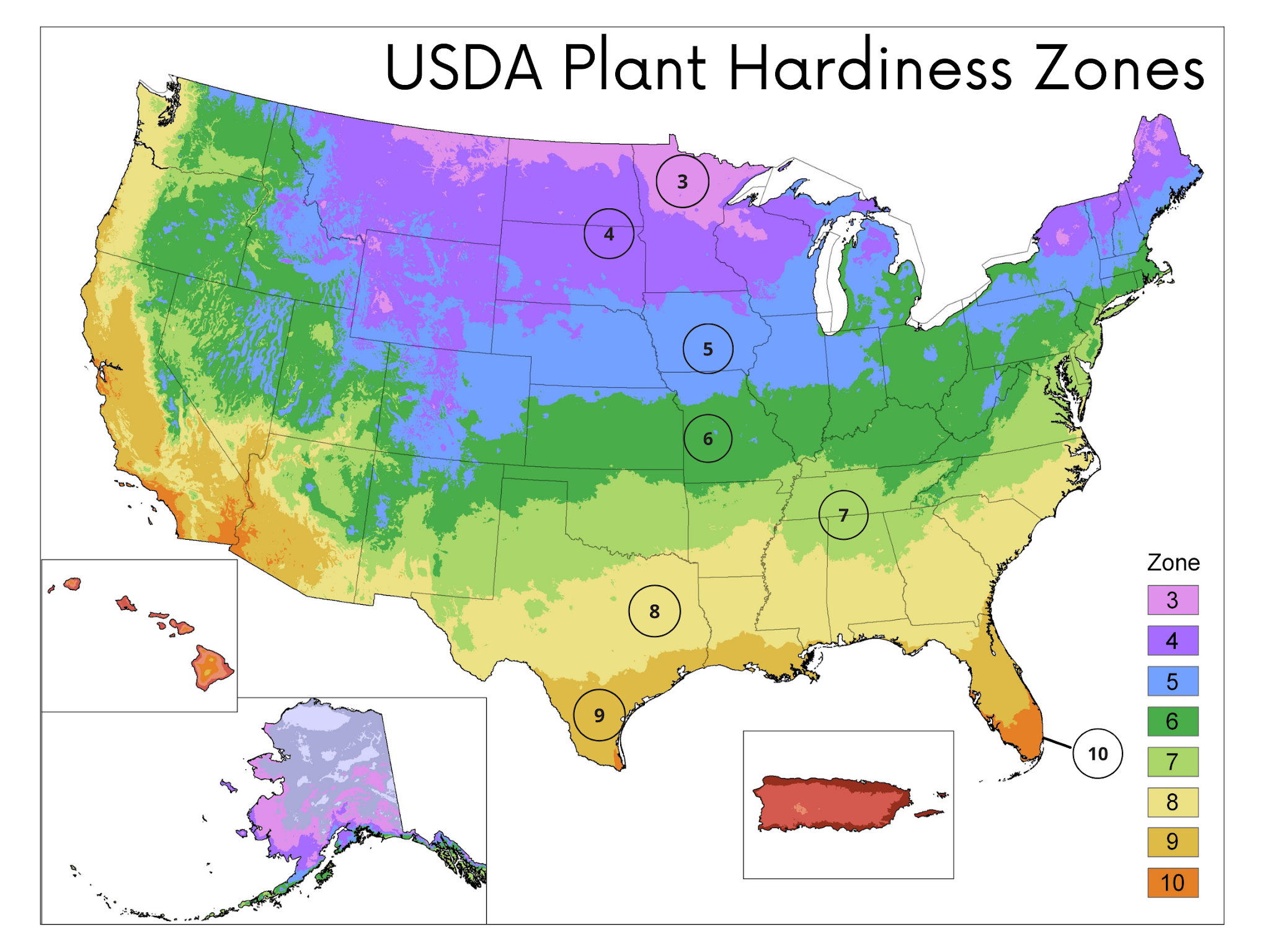Top 5 Gardening Tips:
My general advice for beginners is just to start. When I first began my hobby, I wasted many hours researching the perfect way to grow things. I'm not saying research is a waste, but I spent more than the necessary amount of hours trying to do things perfectly rather than just taking action. I realized that I was trying to predict nature. What I've learned is that gardening should be an adventure that involves a lot of trial and error. Nature is constantly changing and adapting, so it's easier to focus on becoming better at responding to changes in your garden. If you're fairly new to gardening, please continue reading for ideas on where to focus your research efforts.
In 2012, the USDA created the Plant Hardiness Zone Map. Many gardeners use this map to understand the average temperature range for their location. By understanding the average temperatures for your locations, you can choose the plants that would flourish in your area. For example, if I am growing in Zone 7 according to the map, I would start out growing crops that thrive in my zone.
2 - Follow the Sun
Picking the perfect spot to start growing can sometimes be a tough decision. Whether you're growing food or flowers, your plant will need sunshine. I would start by analyzing the movement of the sun from East to West and checking for blocking bushes or trees. The area where you intend to grow should have as much sunlight as possible because it's easier to shade your plants, then add more sunshine.
3 - Use Protection
4 - Soil Quality Matters
5 - Water Only When Necessary
When I first started gardening, I set my sprinkler to go off everyday in the summer. It had a rain sensor, so I assumed I wouldn't have an issue with overwatering. It turns out that many plants don't need to be watered every day. Although water consumption of a plant varies, a good rule of thumb I like to use is to check the soil. If the soil is still moist and dark an inch below the surface, then I would assume the plant still has access to water.
Additionally, you want to make sure that you water properly. By this I mean, try not pour water on top of the plant because it can lead to disease or boiling of the plants if you do it on a hot day. Some of you already know this, but for the ones that don't, you want to pour water on the soil at the base of the plant. Your schedule should be based on the weather and time of day. If I feel my yard hasn't received enough rain for a while, I will set my sprinkler to turn on at 2am so that the leaves will dry before the sun rises. If only a few areas need water, I will turn on my hose or fill my watering can to address the issue.






Follow Us